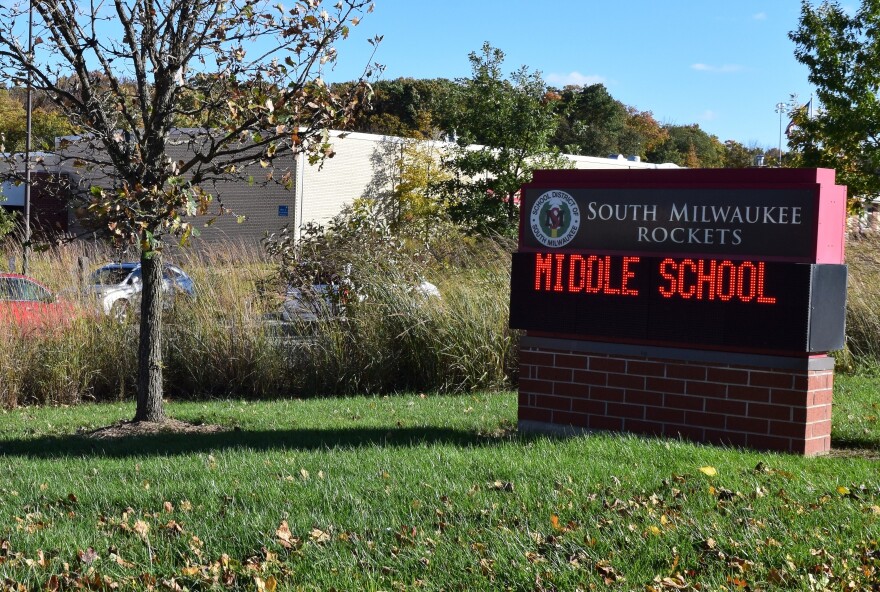Wisconsin public school leaders are frustrated with the education funding plan approved by the Legislature’s budget-writing committee last week.
Republicans on the Joint Committee on Finance proposed increasing state education aid by about $128 million over the next two years. That’s a tenth of the increase proposed by Democratic Gov. Tony Evers.
Lawmakers reasoned that schools don’t need more state aid because they’re getting a big boost of federal support. But the Legislature's state plan actually puts that funding at risk.
"I was very disappointed and dismayed to see their proposal," says South Milwaukee Superintendent Jeff Weiss.
Weiss and other school leaders say the finance committee plan puts them in a precarious financial position, at a time when they want to focus on next school year and how to help children recover from the pandemic.
"There’s a lot — coming back, social emotional needs that students have. There's so much that we want to offer them," Weiss says. "The conversation really changes when we have to look at what we can’t do instead of what we can do."
The federal government has passed three COVID relief bills that provide a massive amount of money for schools to help with pandemic-related expenses, like HVAC upgrades, accelerated learning and mental health support.
The money is referred to as ESSER funding, which stands for Elementary and Secondary School Emergency Relief.
Republicans on the joint finance committee pointed to the $2.4 billion ESSER money coming to Wisconsin as a reason not to significantly increase state aid.
"Asking us to rely entirely on federal funding, which is one-time funding and creates a cliff, wasn’t the intent of the money from the federal government and it’s not sustainable," Weiss says.
The joint finance committee would invest an additional $128 million of state funding over the biennium, mainly in special education and mental health. The amount is so low in comparison to past years that it doesn’t meet a “maintenance of effort” requirement attached to the ESSER money.
At least $1.5 billion in federal aid for Wisconsin schools is at risk if the state doesn’t meet the maintenance of effort requirement.
A letter from the Wisconsin Association of School Boards to its members puts it this way: "The Joint Finance Committee used the federal dollars as an excuse to avoid investing further in our public schools, but then didn’t meet enough of the federal obligation to qualify the state to receive those same federal dollars."
Brown Deer Superintendent Monica Kelsey-Brown says this news caused her team to reassess their planning for next year.
"My business director and I have decided that we’re going to be very conservative as it relates to adding anything additionally to our current budget," Kelsey-Brown says. "Recognizing that the ESSER dollars might not come through, that says to us, maintain where you are and plan for what you have."
Brown Deer and South Milwaukee were set to receive large shares of ESSER funding, because 90% of those dollars are allocated based student poverty rates. Brown Deer is projected to receive about $2,137 per student and South Milwaukee $3,230 per student.
But districts with more affluent populations are not expecting a windfall of federal funds. That includes Hamilton School District in Waukesha County, where Paul Mielke is superintendent.
"Our situation in Hamilton is that we saw very low levels of ESSER funding," Mielke says. "And we were hoping that the state budget would kind of help us out. And it did not. So it was just disappointment because we know a lot of kids are going to be impacted by this."
Hamilton is expected to benefit from a provision added by Republicans that distributes $781 per student to schools that were open for in-person learning more than 50% of the school year.
The finance committee proposal has to go through the full Legislature and then to Gov. Evers. Evers lambasted Republicans’ education plan this week and left the door open for a budget veto.
Now, school districts and their advocates are trying to rally supporters to speak out against the joint finance committee's plan.
The Milwaukee School Board released a statement saying in part: "Budgets are about priorities, moral values, and one’s hopes for the future. Our children should not be political footballs in the partisan games being played by Republican powerbrokers in Madison."
Have a question about education you'd like WUWM's Emily Files to dig into? Submit it below. (If the module isn't appearing, please refresh the page.)
_






